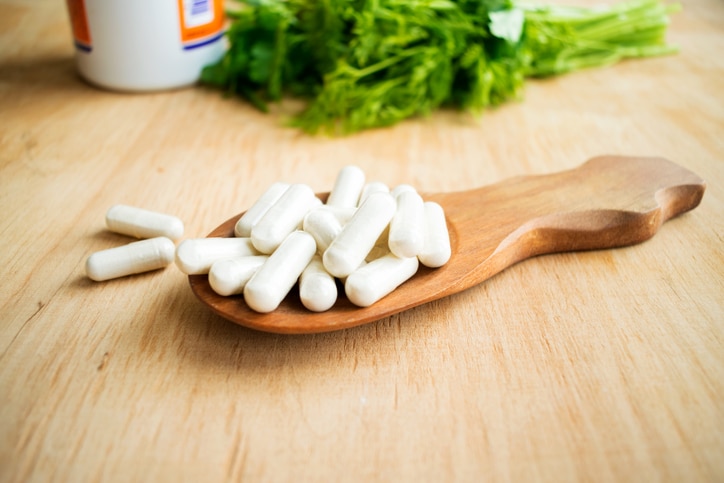We all want to stay mentally sharp – no matter what stage of life you’re in.
But despite our best efforts, we all start to ‘forget’ things – especially as we get older.
Maybe it’s forgetting where you put your car keys… or the day and time of an important appointment.
For millions of Americans, occasional ‘senior moments’ can sometimes lead to life-shattering diseases like dementia.
But what if I told you that you don’t have to surrender to memory loss as part of the ‘aging’ process…
And that you can naturally boost your brain power – no matter how old you are.
Well, thanks to research around an often ‘forgotten’ vitamin… it’s 100% possible!
Vitamin K Helps Strengthen Your Brain
Vitamin K is mainly found in green, leafy vegetables like spinach, broccoli, and kale. It’s also found in proteins like eggs and fish.
And while it may not be the most ‘well-known’ vitamin, vitamin K does play a crucial role in helping maintain a healthy brain and strong memory.
Studies have found that folks who consumed higher levels of vitamin K had better verbal episodic memory performances compared to people who consumed lower levels.
This is important for those everyday ‘recall’ moments – like remembering where you put your keys.
But new studies have also found that vitamin K can help shield and protect your brain from the adverse side effects often linked to dementia and even Alzheimer’s disease.
A recent study found that low levels of vitamin K can lead to dysregulated calcium in your brain –a hallmark sign of damage done to the brain by Alzheimer’s.
And a new animal study even found that vitamin K supplements reduced levels of cognitive impairment, depression, and anxiety in rats.
It should be noted that vitamin K is not a cure for Alzheimer’s, dementia, or any kind of age-related memory loss.
More human research continues to be done on vitamin K and the brain, but in the meantime it’s still beneficial to make sure that you’re getting enough vitamin K in your diet.
Like I mentioned, vitamin K is abundant in countless foods like:
- Kale
- Spinach
- Broccoli
- Cabbage
- Chicken
- Liver
- Eggs
You can also find vitamin K supplements at most health food or vitamin stores. If you’re considering taking a vitamin K supplement, be sure to stick to the recommended dosage stated on the product label.
If you’re experiencing signs of memory loss – or have a history of Alzheimer’s or dementia in your family – it’s important to proactively work with your doctor on a treatment plan best suited for you.

